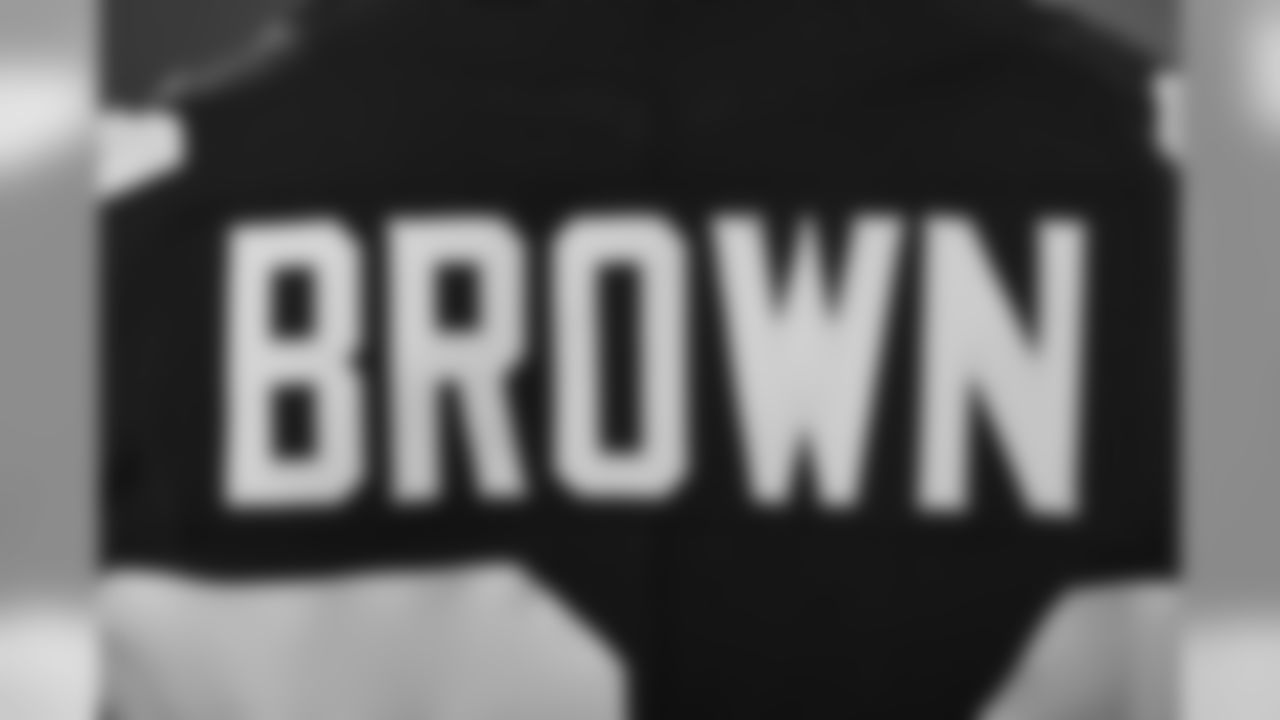Q. Did you learn anything about your team in Cincinnati? Or maybe not learn, but re-affirm?
A. That as this road gets increasingly narrow as we all push toward Houston, you have to be a fighter, you have to be a competitor. You're going to be faced with adversity at times along the way, and whether or not you continue on that journey depends on that competitive spirit. If we learned nothing else from our group in Cincinnati, that competitive spirit was on display and on display in a big way. Sometimes individuals and teams rise up in the face of adversity, and sometimes they don't.
**
Check out the Color Rush uniforms that the Steelers will be wearing on Christmas Day.























Q. That was the team's fifth win in a row. What's going well for an NFL team when it wins five straight games at this stage of a season?**
A. I don't think it's anything that you acknowledge cumulatively. As opposed to winning five games in a row, I like to take the approach that this group is a group that has won one game five times. In that, there is a process of readiness, and they're finding a rhythm in that process, but they understand that each performance stands alone, each performance stands on its own. So those are my words. That's what I try to sell to the guys. I don't know whether or not they buy it, but we're winners of one game in a row five times instead of winners of five straight.
Q. At your news conference on Tuesday, the subject of in-game adjustments came up. You talked about when and how those things are done, but what is the nature of an in-game adjustment? Does it have to do with alignment, or assignment? It's a limited menu at that point, right?
A. If they're ground-zero discussions, then, yes, you're pretty limited. But we've been at this since last spring, so what seemingly might be ground-zero is not ground-zero. You can have complex, quick conversations regarding something because these conversations have been ongoing for a long period of time now. If I explain it to an outside person, it might seem impossible or it might seem a lot to chew on, but with somebody who's been dwelling in this space for the length of time we've been dwelling together in it, those conversations aren't complex. In fact, they're quite regular, and with in-game adjustments quick conversations are a big part of it.
Q. For example, if a team is running the ball successfully, do you move a guy's position? Is it something that simple?
A. If someone is running the football on us, it's not a blanket discussion, like, "Hey, they're running the football on us." We know exactly where the issues are. "Hey, we have a c-gap cut-back problem on open-side runs. You have to close that c-gap down, or we have to get someone to fall back to that c-gap." The discussions are very specific. There aren't general discussions whatsoever. That's what I mean when I say those conversations are very capable of occurring, but it's very difficult to explain to an outside party.
Q. Also last Tuesday, the subject of the awarding of game balls came up. In a previous regime here, game balls were awarded after every victory, for offense, defense, and special teams. Is that not done anymore? Do guys keep their own souvenirs so that it becomes a moot point?
A. It's just a personal preference of mine. I want our resting state to be winning. I want it to be expected. I want it to be very regular. So I'm very cautious about the handing out of game balls. To me, it's got to be something special. Boswell banging six field goals and hitting the touchdown-saving tackle is game-ball worthy. Le'Veon Bell running for a franchise-record in terms of yards is game-ball worthy. Us stepping into a stadium and doing what we're supposed to do or expect to do isn't necessarily game-ball worthy in my mind.
Q. We have talked about team captains in the past, about how that's largely ceremonial but there also is some meaning. Is that the same with game balls?
A. To me, it is, but I just think there needs to be a certain amount of scarcity associated with it. I think it needs to be special. You don't want to go over to a guy's house, and when you walk into his basement he has 85 game balls on the mantel. (Laughs)
Q. If you would be recognizing a few of your players who would fit the description of unsung heroes so far this season, who are some of the guys you might recognize?
A. I like the guys who put ability on display, and by ability I mean availability. Guys who are anteing up and kicking in more than was anticipated or maybe more than what was expected. A guy who has been a consistent contributor to our efforts, and I think that manifests itself in a lot of ways. Eli Rogers, for an example, is an undrafted guy who was on injured reserve last year, and to be in the thick of this thing in the manner in which he's in the thick of this thing, you have to tip your cap to him. Young defenders: guys like Artie Burns and Sean Davis and Javon Hargrave are integral parts of what we're doing on defense. They're talented people no doubt. When we drafted them, we drafted them with that intent. But you have to acknowledge the positivity in which they've grown and the speed with which they've grown and be impressed by those things.
I don't spend a lot of time dwelling on that. That's more of a looking-back thing. I cited those examples because you pressed me. I haven't spent a lot of time, because we have a lot of plays still to be made, and they're the most significant plays. I was just telling Eli the other day that I remembered back in 2010 there was an unknown guy running down the sideline against the Baltimore Ravens with a ball stuck to his head. That weekend all the football world discovered who Antonio Brown was. Maybe this is Eli's weekend. That's what I like about this time of year. That's what these big games and these moments present to people, and if their readiness and mentality are aligned, they have an opportunity to really burst onto an international scene from a professional sports standpoint.
Q. You have said you consider it an honor to be playing on Christmas Day. Why do you feel that way?
A. Because I'm a football lover. I grew up like a lot of kids with this game being very much a part of the holiday, very much a part of building family memories, those shared experiences of sitting around rooting for your team – or rooting against a team – and those images are very vivid for me. To be able to provide that for youngsters who are growing up today and love the game, and for families, is something I take a great deal of pride in being a part of, and I'm humbled to have an opportunity to do it.
**
Q. When you address the team on the night before a game like this one – against a bitter rival with a division championship at stake for your team – what is the tone of your message?**
A. It's usually minimal. The bigger the game, the less that needs to be said. I've always believed that. We talk a lot and I'm very thoughtful about the words I choose in leading up to it. If I do anything, I'm just going to reiterate the points I think are going to be critical and that I've made during the course of the week. When the kitchen gets hot, you need to make the complex simple. You need to make irregular regular. So I don't try to use any new or unique presentation techniques or information. I talk about what's real, what's important, what's required for us to win.
Q. How is the Ravens' defense so tough against the run?
A. It starts inside and up front. They've always had quality interior defensive linemen. You can go back to Kelly Gregg, the nose tackle before Haloti Ngata, and then Ngata, and now Brandon Williams. They've done a great job of identifying talent at that position and then cultivating that talent, and building the unit inside out. They've got top-quality interior front people.
Q. Since you got here in 2007, the Steelers and the Ravens have played 22 times. Twelve of those 22 games have been decided by three points. Do these two teams come in with the mind-set that it's always going to be a close game, and therefore the decisions made in the games help them stay close? Or is it possible that two teams could be so evenly matched over the course of an entire decade?
A. Over the course of the decade, these two teams have been quite frankly evenly matched. I don't think any of us go into it on either side with the mentality that we're going to eke out a victory. I think both teams step into the stadium with the mentality that they intend to dominate. But when that mentality is shared by both groups, it also creates the parity that you described.
Q. How would you describe Steelers-Ravens to someone who never has seen the teams play?
A. It's timeless football. You could put the television on mute and watch it and enjoy it. There are guys rising up in the face of adversity. There are guys pulling together for a cause. It's mutual combat. If you love football, if you love combat within physical sports, I think the game is reflective of that.














